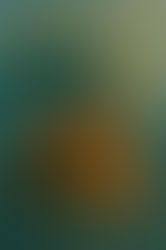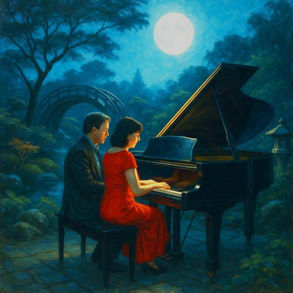Studio at the Edge of Time
- John Ash
- Aug 19, 2025
- 4 min read
Updated: Aug 20, 2025
The dance studio is empty. Or at least, it appears that way.
The long mirrors on the far wall seem to hold their breath, waiting for a movement worth reflecting. The black vinyl floor rests with the stillness of a dark sea before a storm. Dust motes hover in the high windows like little fragments of forgotten applause. I am not here for a class. Not for a rehearsal. I am seventy-nine years old and I have come to dance. That is all.

I do not knock. The studio has no door in the conventional sense—it is always open for those who remember it with their bones.
I move toward the center. The floor knows me. I paid for its construction once—spring-backed hardwood with vinyl overlay, a skin stretched over a careful web of shock absorption. I thought it would keep my knees from failing. It didn’t. It only delayed the inevitable.
I raise my arms. A pirouette. Not graceful, not even balanced. But the studio obliges. The world spins. I stop. The world continues to turn, as if untethered from time. I’ve felt this before—years ago, in Tokyo, in a jazz club with a woman who wore silver shoes and spoke in riddles. She, too, spun without moving.
At the barre, I assume first position. My feet attempt the straight line they once made so easily. Now they resist, like old cats curled in sunbeams. My ankles smolder—first a warning, then a surge—an electric kind of nostalgia. My body wants to remember, but remembers too much.
She arrives quietly. Not like a person entering a room, but like a memory crossing a threshold. Laura. Forty-five. A dancer still. Her movements smell faintly of eucalyptus and liniment. She sets herself at the barre not far from me, as if she'd been summoned by some silent telegram. We have danced before, in ways that don’t always involve music. She is in the early autumn of her life. You can see it in her joints, in the way her body negotiates with time rather than resists it.
We do not speak of our histories directly. We speak of knees, of calves, of the impossible ache that settles behind the tendons like a hidden passageway we’re too afraid to walk down. Her eyes, when she stretches, look at the mirror with hope. Mine looks for a place to hide. My toes groan. My ankles 1grumble. Calves mutter like tourists trapped on a broken-down bus. But the knees—ah, the knees—they rage like aging jazz drummers in a club that’s lost its liquor license.
Still, I dance.
I place my right hand on the barre. My left arm lifts into port de bras. My fingers, gnarled by arthritis, take on a gesture that looks accidental but feels sacred. Like a secret sign to the stars. Vulcan salute? Maybe. Or the way my mother used to wave when words failed her.
In the mirror, I examine the partitioned reality of my body. From the waist down, I might still pass for twenty-five. Ballet slippers snug against black tights. Suspendered waistline drawn tight like a cello string. But from the waist up, it begins to unravel. A belly no longer in negotiation with gravity. Spotted arms—psoriasis, keratosis, memories. My neck sags into a story my head no longer wants to tell. And when the sweat begins to bead at my temples, the rivulets carry away whatever illusion remains.
I bend into a demi-plié. Knees over toes. Heels grounded. Then deeper—Grande plié. The heels lift. The descent is easy. The ascent, less so. I wish for strings. Not metaphorical ones. Real strings. I want to be pulled back up by the hands of some benevolent puppeteer who understands the anatomy of suffering.
But there are no strings. Only rust.
Laura does not watch me, but I feel her noticing. It is not pity. It is something else—like a violin recognizing the last resonance of a forgotten bow.
I try a tendu. My foot obeys, reluctantly. A rond de jambe. My hip clicks like an old radio changing stations. My body knows these movements, but it protests. It remembers too many opening nights, too many missed landings. Muscles, it turns out, do not forget. They just go quiet in the corners until they are called to perform, and then they sigh like old lovers revisiting a familiar wound.
Somewhere behind me, someone hums. I think it is Laura, but the voice feels detached from the body, as if the studio itself has begun to sing. A low lullaby, in a key made of dust and rosin and longing.
The younger dancers no longer say hello. That’s fine. They believe they are springtime incarnate. They are not wrong. They leap like deer and shine like polished glass. But glass shatters. Light fades. Time, like a faithful stage manager, cues every exit.
Me? I am not the lead. I am the understudy who never took his final bow. Still rehearsing. Still hoping someone, somewhere, is watching.
At the barre, I make peace with decline. There is a grace in what remains. A slow, aching grace that no twenty-year-old can summon. I dance not for the mirror or the audience or the casting call that will never come. I dance because somewhere, in the folds of air between mirrors, the room dances with me.
Maybe, just maybe, some tired choreographer—one with a limp and a failing memory—will see me and say: That. That is the movement I’ve been waiting for. And it will be enough.













